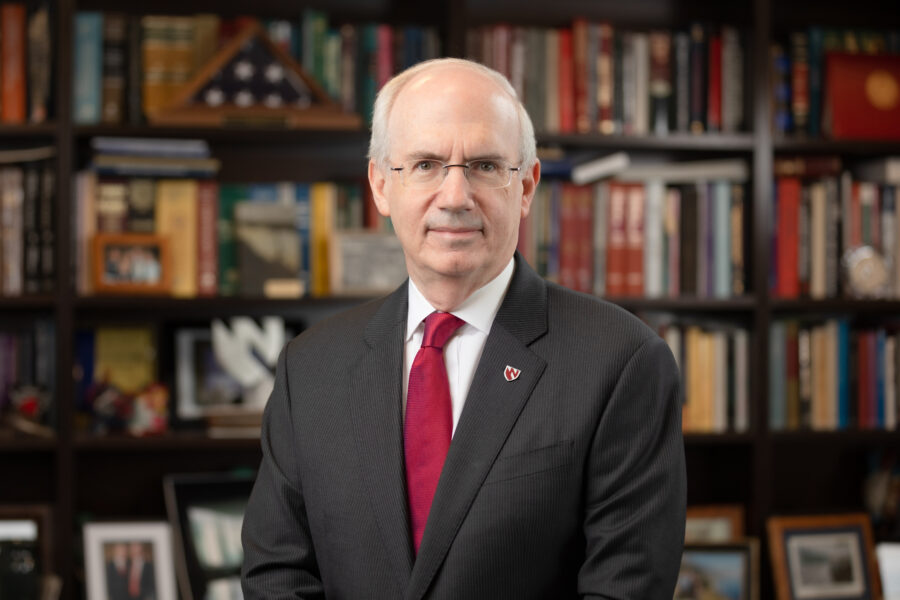On Monday, the National Academy of Medicine published its National Plan for Health Workforce Well-Being – a strategic roadmap to better support care providers and safeguard the nation’s health.
UNMC Chancellor Jeffrey P. Gold, MD, who was in Washington, D.C., for the announcement, applauded the plan, saying, “This will be a day in the history of health care in our nation that is roughly equivalent to the day that ‘To Err is Human’ was rolled out over 20 years ago.”
That’s significant because “To Err is Human: Building a Safer Health System,” released in November 1999, is one of the National Academy of Medicine’s (formerly the Institute of Medicine’s) best-known and most frequently cited reports. The report’s recommendations and findings serve as the cornerstone of the patient safety and quality movement throughout the nation.
“The COVID-19 pandemic further exacerbated pre-pandemic burdens for health care workers, and this plan helps address how we create a world where patients are cared for by a health workforce that is thriving in an environment that fosters their well-being,” said Dr. Gold, who served as co-leader on NAM’s Working Group on Mobilizing National Stakeholders, which helps mobilize and sustain the engagement resources and accountability of key health care stakeholders.
Built on six years of collaboration among a network of 200-plus organizations and public input, the multidisciplinary national action plan, complete with action steps, will:
- Create and sustain positive work and learning environments and culture
- Invest in measurement, assessment, strategies and research
- Support mental health and reduce stigma
- Address compliance, regulatory and policy barriers for daily work.
- Engage effective technology tools
- Institutionalize well-being as a long-term value
- Recruit and retain a diverse and inclusive health workforce
Read the full National Plan online.
“Change won’t be easy; we didn’t get here overnight,” said U.S. Surgeon General Vivek Murthy, MD. “But if we fail to address burnout and ensure health workers have the support and resources they need, then the consequences will be felt by everyone who relies on the health care system.”
Just as health care providers discuss the importance of seeing and treating the whole patient, Dr. Murthy said, similarly, it is important to see the whole health care worker – not just their skill sets.
“This (plan) is a critically important tool in the journey, but we have a long way to go,” said Darrell Kirch, MD, Association of American Medical Colleges, saying “a culture that understands that people have limits is going to be critical.”
“There is deep support (for the plan) across the professions,” said Victor Dzau, MD, president of the National Academy of Medicine, displaying a slide of more than 30 early supporting organizations including UNMC.
“Well-being is a journey we need to travel together,” he said.
